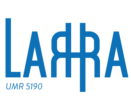Scope note for the class A14_Knowledge Back
Candidate
Scope note
- Text
We have decomposed the class "knowledge" into two subclasses:
i) "declarative knowledge" which is a body of knowledge that an individual is capable of expressing, i.e. translatable into language in oral, written, etc. form;
ii) "embodied knowledge" or incorporated knowledge as indicated by CHAMOUX [1978] quoting Yves Barrel:
"Work is first of all an activity which rests either on an incorporated know-how, or on the mastery of algorithms. An embodied know-how is a know-how that is inseparable from concrete individuals or groups: it is the result of their personal learning, their experience, their skill. The most important characteristic of embodied know-how is that it cannot be analyzed and decomposed to the end (the case where
analysis and decomposition are possible, but not attempted, is a borderline case). The worker knows how to do it, but he does not know completely how he knows. The embodied know-how is therefore not transmissible by teaching. It can only be transmitted by learning, i.e. by the more or less identical reproduction of individuals or groups during the work itself. The support of the know-how is human and biological.
When know-how can be analyzed and decomposed to the end, knowledge and action can be disconnected. Knowledge is then incorporated into a non-human relationship: a book, a treatise, a program an instruction sheet, a sketch etc.".
This is what we call "declarative knowledge".- Language
- en




Comments
No comment found.